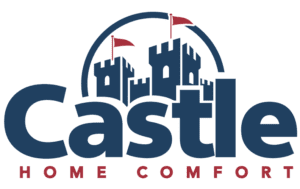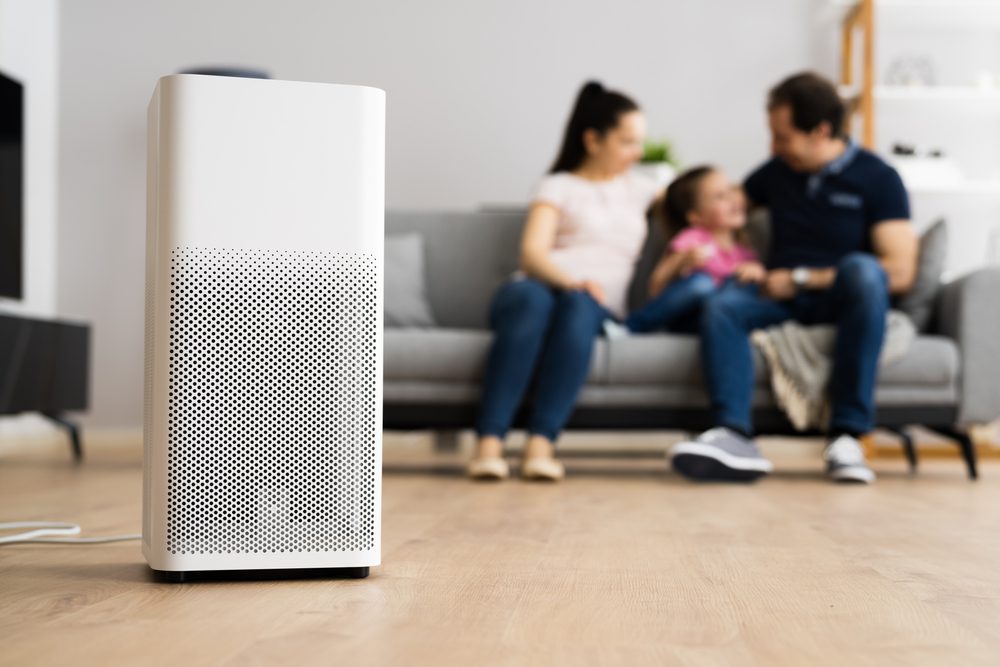Air pollution has been a problem in Champaign, IL, and the rest of the world for many years. Most of the attention to pollution focuses on the sources of outdoor pollution, such as cars, industrial plants, chemicals, fires, dust, pollen, and so forth.
Indoor air quality hasn’t received quite as much consideration, but it’s just as important to think about. The Environmental Protection Agency (EPA) says that indoor air can be five times more polluted than outdoor air.
Poor circulation is the main reason it can be hard to maintain quality air inside. Air simply doesn’t move around indoors as it does in the outside world.
The first step to better indoor air quality is to increase ventilation, but only when the outside air quality is good. Outdoor contaminants from sources like vehicle emissions, fires, factories, pollen, dust, and more can get inside when the outside air is bad, however.
That’s why an effective system that supports your A/C unit can go a long way toward ensuring quality air in your home. With this in mind, there are several devices and appliances that can be of great service.
Different Types of Air Cleaners
When it comes to air-cleaning devices, there are several different appliances and fixtures that can be used to filter or eliminate some of the most common contaminants in indoor environments. Each has different functionality and you may need all or one of them to improve indoor air quality sufficiently.
The phrase “air cleaner” is often used interchangeably with “air purifier,” but they are actually two separate kinds of devices that perform slightly different tasks.
Air Cleaners
An air-cleaning device works as a filter. It takes air in and collects larger particles of dust, pollen, pet dander, mold, and other contaminants, and then sends the cleaned air back out through vents.
Air cleaners are classified into one of two types: mechanical and electronic. Mechanical air cleaners include your HVAC system filters that trap particles in materials like fiberglass or cotton. Electronic air cleaners, like HEPA filters and in-duct UV cleaners, attract particles through electrostatic attraction and neutralize them through electrical charges.
Air Purifiers
While an air cleaner traps and detains pathogens, an air purifier goes the extra mile and destroys them. It does so with heat, UV light, or ozone generation.
However, not all air purifiers are safe. Ozone generators, for example, are harmful to the environment. While an air purifier can’t get rid of certain airborne pathogens or particles that an air cleaner traps, it can destroy some contaminants effectively. For instance, a UV purifier can kill certain bacteria and viruses.
There’s one simplistic but valid way to explain the difference between air cleaners and air purifiers: Cleaners get rid of what makes you sneeze while purifiers get rid of what makes you sick. Both need good air circulation to work effectively.
Benefits of Air Cleaners, Purifiers, and Cleaning Devices
Whatever devices you choose, an effective air cleaning setup can be of great help in several ways.
Better Physical Health
The most important benefit of air cleaners is that they help to relieve certain health problems. Bad quality air inside the home is often the cause of conditions like asthma and allergies. An efficient air filter traps many of the substances that cause those troublesome health issues.
However, there are other microorganisms that can lead to more serious health problems, such as the COVID virus. In an environment with poor air quality or stagnant ventilation, germs from bacteria and viruses spread from sick persons to healthy persons. These microorganisms can be spread through HVAC ducts and vents from room to room.
In those cases, HEPA filters come to the rescue. The EPA states that a certified properly maintained HEPA filter gets rid of 99.97% of dust, pollen, bacteria, mold, and other airborne particles that can cause illnesses.
UV air purifiers can help to reduce the chance of contracting anything from the common cold to influenza and tuberculosis. Although research hasn’t yet proven that filtration can slow down coronavirus transmission, scientists believe it may be possible.
Reduces or Eliminates Unpleasant Smells
Every home has its share of foul or obnoxious odors: used cooking oil, aerosol sprays, chemicals, paints, cleaning products, upholstery foam, and so forth. But the substances producing these smells aren’t just annoying—they can be terribly unhealthy, too.
These odors come from volatile organic compounds (VOCs). They’re chemicals that you unknowingly use in daily life, such as benzene, ethylene glycol, gasoline, formaldehyde, methylene chloride, tetrachloroethylene, and many more.
VOCs have been shown to cause immediate health conditions, such as nausea, shortness of breath, dizziness, headaches, and cognitive dysfunction. Long-term exposure to VOCs can even cause cancer or damage to a person’s liver, kidney, or central nervous system.
Air purifiers with HEPA filters activated carbon filters, and other air cleaners can help control these odors (as well as the VOCs you can’t smell). They work on gaseous compounds as well as particle contaminants. The result? A cleaner-smelling house.
Improve Sleep
Poor air quality is one of the many causes of insomnia and sleep disruption. Allergens like fungi and bacteria can generate hay fever or allergy attacks. When sneezing, congestion, eye irritation, or throat soreness continue for an extended time, they can adversely affect your sleeping habits another factor in bad physical and mental health.
This is another area that a quality air purifier or cleaner can address. It can eliminate some of the most common bacteria and germs that cause those symptoms and get in the way of a restful night’s sleep.
UV Light Can Improve HVAC System Efficiency
The HVAC unit is one of the most energy-consuming systems in any home. In some houses, it can account for more than half of the overall energy used. Older HVAC units are forced to work harder because of contaminant buildup on their components. That always translates to a more expensive utility bill.
When combined with regular maintenance, a UV light filter inside the HVAC system can reduce a home’s overall energy usage by up to 35%. It can’t do the job all by itself, but along with good upkeep habits, a UV filter can keep your HVAC in the best operating condition possible. It doesn’t have to work as hard and less work means lower energy use, which equals a lower energy bill.
What Kind of Air Cleaner System Should I Buy?
The air-cleaning device or combination of devices depends on your home’s needs and what air quality issues you want to solve. Some filters are specifically designed to address allergies, asthma, pet dander, smoke, or chemical substances. Others address many or all of them.
You’ll also want to take other factors under consideration, such as unit size, maintenance, noise generation, and Energy Star rating.
Whatever you ultimately decide, the benefits of a sensible air cleaner can make a huge difference in your home’s livability and your family’s health. It’s amazing how much impact quality air can have on everyday life and getting an air cleaner installation is the first step in bringing it to your home.
Air Cleaner Installation in Champaign, IL
When you search for “HVAC technician near me,” look for one with strong reviews for air cleaners and air purifier installation.
Castle Home Comfort Roofing & Cooling is Champaign’s first choice for an air cleaner installation. We’ll help you navigate the options you have in air purifiers, filters, and cleaners. We’ll also tell you about our other indoor air quality products and services that improve your home and health.
Ready to learn more? Schedule service online or give us a call today!

